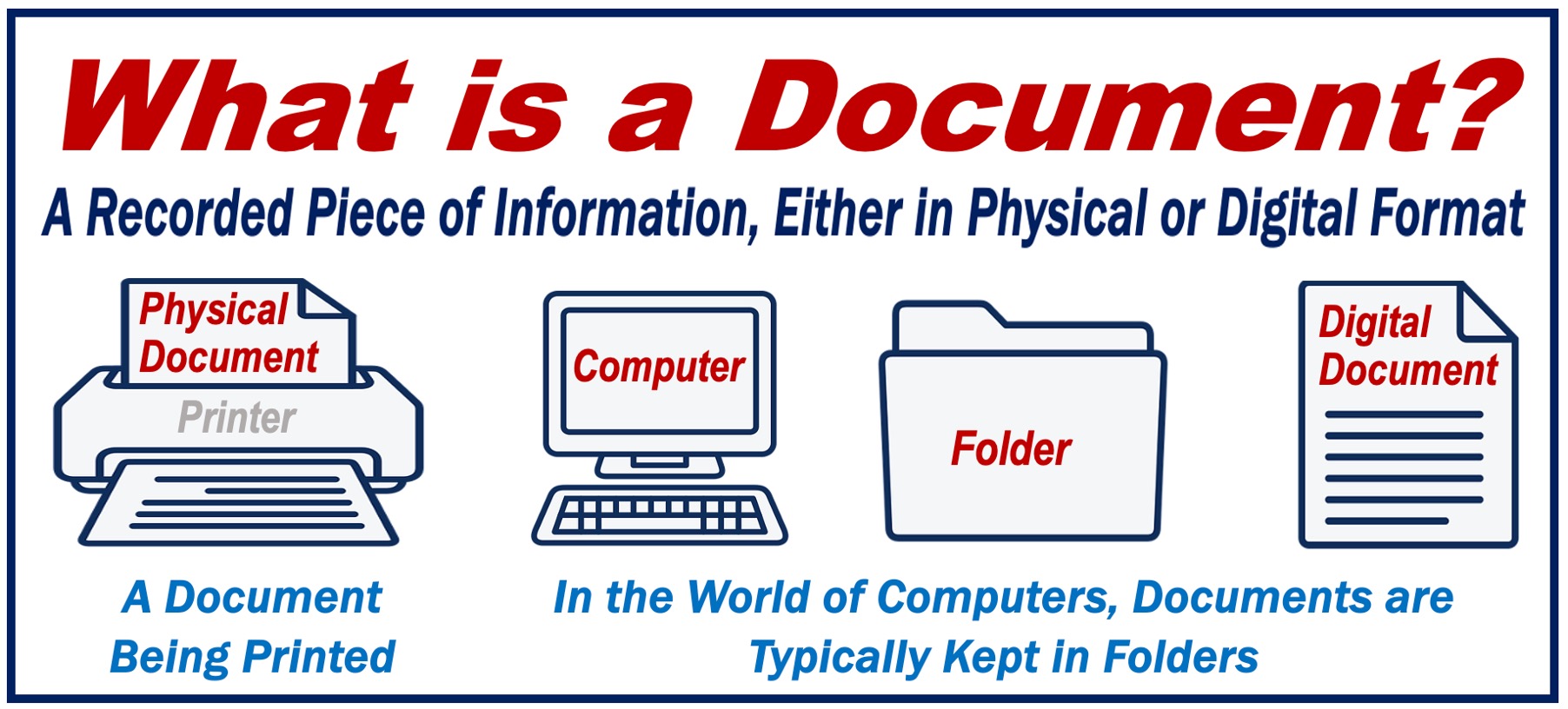A Document is any written, printed, or electronic record that provides information, evidence, or services as an official record. It may be in several different formats, including, but not limited to, paper documents, digital files, images, and audio recordings.
How the term ‘document’ has changed
The meaning of the term document has changed slightly over the past few years thanks to computers.
A traditional document is a set of printed information, often official. Today, it does not have to be on paper; it can be written using software programs like Google Docs or Microsoft Word. In fact, most documents today are not printed at all.
Types of documents
There are many types of documents, some of which include:
-
Text documents
Including reports, letters, memos, and books. They mainly consist of text and have a variety of uses, such as business or education.
-
Electronic documents
Electronic documents include digital versions of text documents, such as spreadsheets and presentations.
-
Legal documents
Wills, contracts, and birth certificates that are filed in a court are examples of legal documents.
-
Historical documents
Such as government records, letters, and manuscripts.
-
Financial documents
Examples include invoices, receipts, financial statements, and budgets.
-
Technical documents
Instructional guides, product specifications, and manuals.

Image created by Market Business News.
Importance of documents
Let’s have a look at some reasons why documents are important:
-
Record keeping
They are crucial for keeping records in business, law, medicine, police work, and personal affairs.
-
Communication
They make communication between individuals, organizations, and governments a lot easier.
-
Information sharing
With them, we can share, publicize, and acquire knowledge and information.
-
Legal evidence
In legal contexts, they may serve as evidence and are fundamental in establishing facts and rights.
Characteristics of an effective document
An effective document has several characteristics, including:
-
Clarity
Clear and understandable content is crucial for effective communication.
-
Organization
It should be organized and well-structured for ease of use and comprehension.
-
Accuracy
Ensuring the information is accurate and up-to-date is super important.
-
Relevance
The content should be relevant to the audience and the purpose of the document.
Challenges in document management
Individuals may encounter several challenges when managing documents, including:
-
Storage and organization
It can be difficult to manage storage and guarantee easy access, particularly with digital documents.
-
Security
Maintaining the security of sensitive documents, especially in digital form, is crucial.
-
Preservation
While physical documents are prone to deterioration over time, digital documents face risks such as data corruption or technology obsolescence.
The future of documents
The future of documents is bright, especially with the advancements in artificial intelligence:
-
Digital transformation
The shift towards paperless environments and digital document management systems is accelerating.
-
Collaboration Tools
Online platforms are enabling instantaneous document collaboration across different locations.
-
Artificial Intelligence (AI)
AI is increasingly being used to assist with document organization, search, and analysis, especially for managing large volumes of data.
Video – What is a Document?
This interesting video presentation, from our YouTube partner channel – Marketing Business Network, explains what a ‘Document’ is using simple and easy-to-understand language and examples.
Written by Nicolas Perez Diaz
